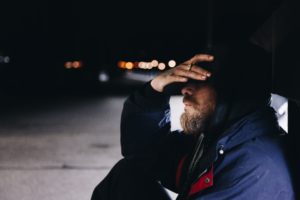Councils and charities vow to boycott policy to deport rough sleepers
More than 100 local authorities and charities have pledged not to participate in new Home Office rules around rough sleeping.
The pledge is part of the charity Homeless Link’s ‘Support don’t Deport’ campaign, urging local authorities and homelessness charities to not make referrals under new Home Office immigration rules which make rough sleeping grounds for refusing or cancelling someone’s leave to remain.
The pledgers represent areas from across England. They include local authorities representing close to 2.5m people combined, homelessness charities and other organisations who regularly work with people experiencing rough sleeping such as drug and alcohol treatment providers.
The new rules, which were published in October 2020, were met with widespread opposition from the homelessness sector. The Home Office published new guidance in April this year to make it clear that these new powers can only be used if ‘a person has refused repeated offers of suitable support and engaged in persistent anti-social behaviour’. But Homeless Link is urging organisations to take a stand on the issue, communicating their support for people sleeping rough.
Rick Henderson, CEO at the national homelessness membership charity Homeless Link, said: ‘Having a safe place to stay is a basic human need and should apply to everyone regardless of where they were born. We all benefit when our public services, including homelessness services, are trusted and can focus on helping people to achieve that.
‘I’d like to congratulate all the organisations who’ve signed our pledge for taking a stand and putting the wellbeing of people they support above anything else. Having over 100 pledges is a clear message that these rules are not supported by the homelessness sector.
‘The nuances and intricacies of policies like these often aren’t understood well on the ground. We fear that, if local authorities and homelessness charities don’t take a clear stand on this issue, fear around deportation could prevent many of society’s most vulnerable people from accessing support.
‘In many cases, people sleeping rough have experienced significant trauma in their lives. As a result, they often have multiple, complex needs such as mental health issues and issues with drugs and/or alcohol. This can make it hard for people to engage with services and take up offers of support. It should never be grounds for changing someone’s immigration status.’

Cllr Tom Renhard, the cabinet member for housing delivery and homes at Bristol City Council said: ‘Bristol has worked hard to earn our status as a City of Sanctuary and a welcoming place for refugees. As we continue to move towards our target of being a city where no one has to sleep rough, we are concerned about the impact these rules could have on people.
‘Committing to the Support don’t Deport campaign shows that we do not want anyone experiencing homelessness to be put off from seeking the help they need from the services provided by the council and our partners as a result of these rules.’
Aidan Gray, director of development at Porchlight, Kent’s largest homelessness charity, said: ‘As a charity working in Dover and other Kent coastal towns which are common points of entry to the country, we want vulnerable people to know that we’re here for them and we stand against these immigration rules. They need help, not punishment, to escape the misery of homelessness and we’ll continue doing everything we can to support everyone who needs us.
‘It’s heartless to target people who are rough sleeping with deportation. Living on the streets is dangerous and frightening and it can take time for our teams to build trust. Now the fear of deportation will push people who are born outside of the UK even further from the support they desperately need and put them more at risk of exploitation and slavery.’
Jon Sparkes, Crisis chief executive said: ‘People sleeping rough need help, but we know that these rules will only serve to push people further away from support and leave them at greater risk of exploitation.
‘There have been huge strides to tackle rough sleeping over the last year, with thousands of people moved into safe emergency accommodation but these changes threaten to undermine that progress.
‘With the UK government having committed to ending rough sleeping by 2024 we would once again ask that they reconsider using these rules if they want to truly tackle one of the greatest social injustices of our time. Treating people with dignity and respect must be the way forward.’
Photo Credit – Jonathan Rados















